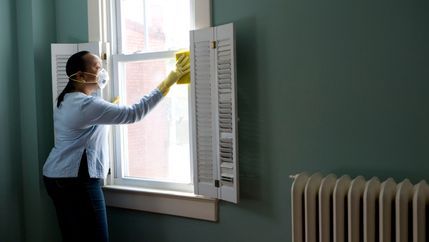
This Primary Authority Advice has been produced by Warwickshire County Council Trading Standards Service, in partnership with The Property Ombudsman and Propertymark, for use by member businesses as an aid to complying with the law. If you follow this advice correctly, your local Trading Standards Service should respect this and not ask you to comply with the law in a different way. If you are contacted by a local authority enforcement body, please inform them that you are a member of the scheme.
Assured advice issued:
1. What are the General Product Safety Regulations’ responsibilities with regard to let accommodation?
Under regulation 8 of General Product Safety Regulations 2005 (GPSR), a distributor shall act with due care and shall not supply any product which he should have presumed, on the basis of information as a professional, is a dangerous product. Regulation 2 defines these terms as follows:
- A ‘distributor’ is any professional in the supply chain whose activity does not affect the safety properties of a product (e.g. a landlord).
- ‘Supply’ includes making a product available, in the context of providing a service, for use by consumers.
- A ‘product’ is something that is intended for consumers, which is supplied in the course of a commercial activity. This includes new, used or reconditioned items.
- A ‘dangerous product’ is any product other than a safe product.
- A ‘safe product’ is (briefly) one that, under normal conditions of use and bearing in mind its overall nature and characteristics, presents no more than minimal levels of risk.
This means that a landlord, as the owner of the property, can be a ‘distributor’ for the purposes of GPSR, and any products within the property should be safe.
It is important to note that a letting agent or management agent could also be defined as a ‘distributor’, if they have a contract with the tenant, because they are ‘professionals within the supply chain’.
The responsibility under the GPSR is that only safe products are supplied to tenants within the property they are letting.
The initial date for the supply of a product will be the date the tenant moves into the property, and this supply will continue every day the product remains inside the property for use by the tenant.
Under regulation 8 of GPSR, the distributor should pass on information on the risks posed by the product. This will include providing the product’s instructions. If the instructions were damaged or missing, then steps should be taken to pass on vital safety warnings for safe use; this will include contacting the product manufacturer to obtain a new set of instructions, or downloading a set from the manufacturer’s
2. What are the responsibilities when a product in a property becomes subject to a product recall during the tenancy?
Under regulation 9 of GPSR, once the distributor knows that a product poses a risk to the tenant (for example it has been recalled), they should follow the action required by the recall notice.
If the landlord or agent failed to take action to prevent the risk to the consumer following a recall by leaving the product at the property, then they would commit an offence under regulation 20 of GPSR.
3. What best practice measures could be taken to contribute towards a due diligence defence in relation to unsafe goods in let accommodation?
There is a statutory defence contained in regulation 29 of GPSR for distributors to prove that they took all reasonable steps and exercised all due diligence to avoid committing the offence.
The guidance below is not mandatory, however it is best practice and will contribute toward the formulation of a due diligence defence.
First, it is important that the landlord and letting agent establish who between the two of them is responsible for product safety in let accommodation, in writing.
If the letting agent is only marketing the furnished property to find a tenant for the landlord, and the agent does not enter into any contract with the tenant directly, then the distributor responsibility would remain with the landlord. This should be clearly identified in the marketing contract between the landlord and agent.
If the agent offers a managed or partially managed service to the landlord and enters into a direct contract with the tenant, or receives payments direct from the tenant, then both the landlord and the letting agent would bear the distributor responsibility.
Secondly, the landlord and/or letting agent responsible for products supplied in let accommodation should complete a thorough inventory of all the consumer products that are in the property, and thus supplied to the tenant. As a minimum the inventory should contain:
- Address of the property
- Name of the Landlord (and/or Letting Agent)
- Date of inventory
- Name of the person completing it.
Within each room and for each product therein:
- Item description
- Manufacturer / brand name
- Model / batch number
- Serial number
- Instructions present & complete (if applicable)
- Purchase date / Installation date
- Current condition.
Thirdly, once the inventory is complete, the landlord, as the owner of the products, should register any domestic appliances using the website below. This will enable the landlord to be notified immediately of any recall affecting the domestic appliances registered.
registermyappliance.org.uk/registration/
Fourthly, the landlord and/or letting agent should check that the consumer products listed within the inventory have not been subject to a product recall. This check should be carried out at the start of the tenancy, and the outcome of the checks should be documented. The national website below will assist in this:
productrecall.campaign.gov.uk/
In some circumstances, it may not be possible to find a consumer product on one of the recall databases. This does not automatically mean that the product is safe, so the responsible person should still carry out a physical examination of the product (whilst compiling the inventory) to ensure that it is complete, undamaged, operational and accompanied by instructions (where applicable). Any checks and findings should be documented. A person carrying out these checks should be competent.
Fifthly, additional checks should be carried out for specific products, such as upholstered furniture, gas appliances or electrical items. Information on these specific requirements can be found in the Business Companion in depth guide covering goods in rented accommodation:
businesscompanion.info/en/quick-guides/product-safety/goods-in-rented-accommodation
Lastly, products could be found to pose a risk at any time and then recalled. It would be sensible for the checks outlined above to be carried out periodically, e.g. once a year or at the start of a new tenancy, whichever comes first. These periodic checks and findings should be documented.
All documented checks that have been carried out under this best practice advice should be kept for a period of six years or until the end of a continuous tenancy, whichever is longer.
Should an incident occur, the landlord and/or letting agent should co-operate with an enforcement authority and produce evidence of the above checks when requested.
This advice has been agreed by the following Supporting Regulator:
BEIS - Office for Product Safety & Standards
Victoria Square House, Victoria Square, Birmingham, B2 4AJ
Download the full version
Download the full version of this advice to see what legislation and guidance Warwickshire County Council Trading Standards Service considered before providing this advice.




